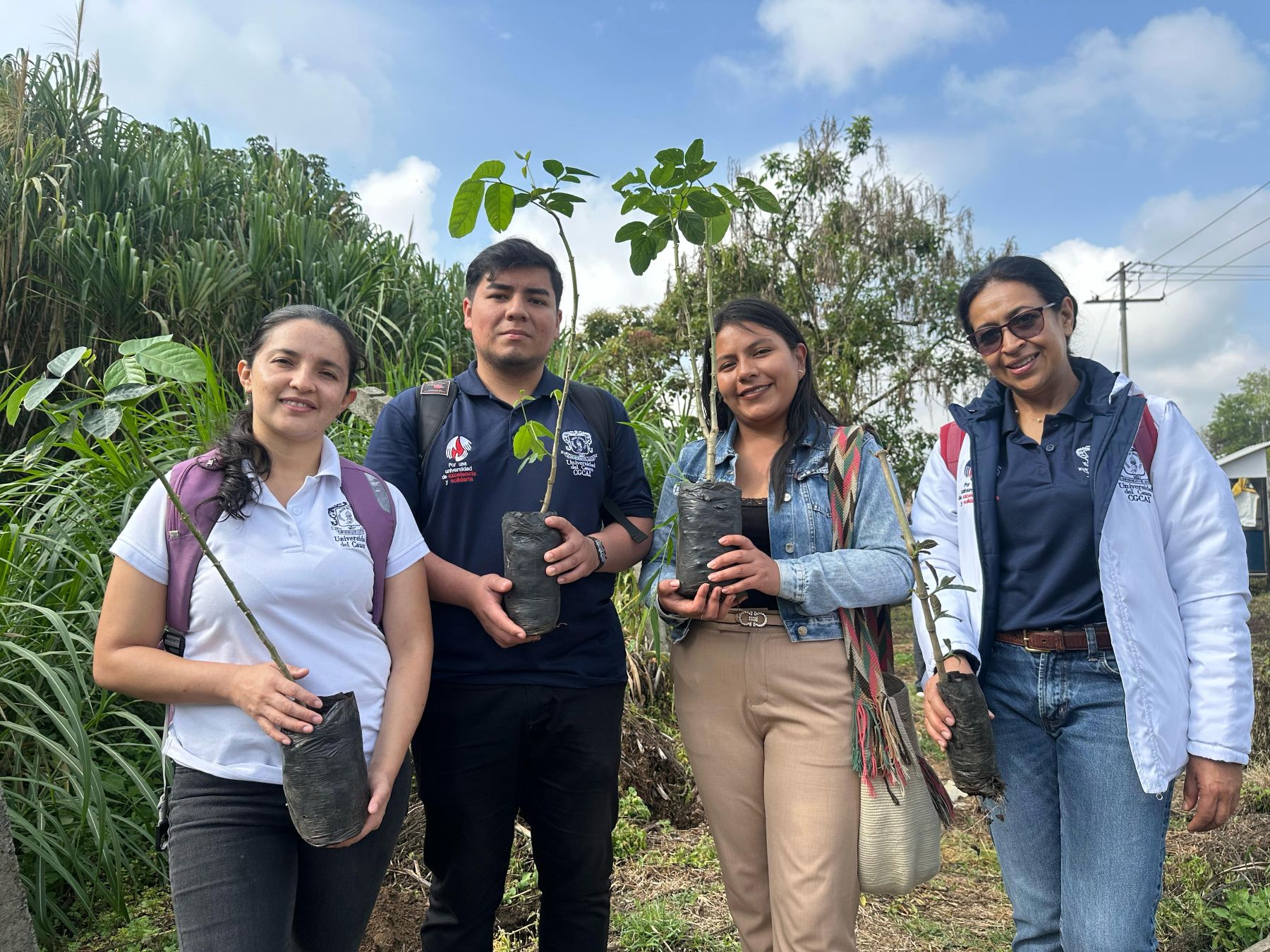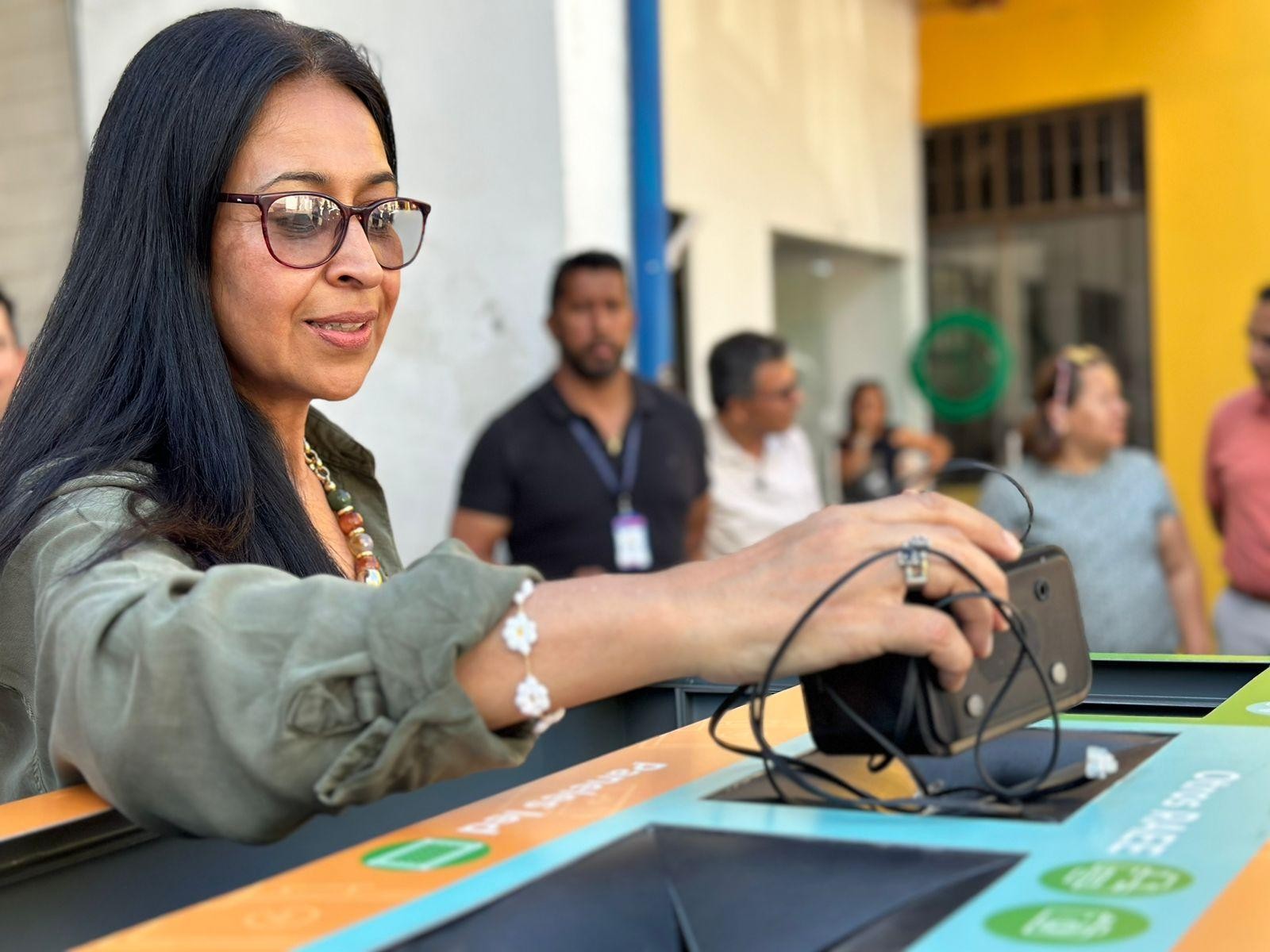News
Professor, do you want to be part of the change? By caring for our present, Unicauca is committed to environmental management
Through the implementation of the climate change amendment to the ISO 9001:2015 standard, Unicauca strengthens its environmental commitment and reaffirms its dedication to sustainability and adaptation to associated challenges. By promoting initiatives that include workshops, information campaigns, and seminars with experts focused on risk prevention, the promotion of healthy habits, and the strengthening of sustainable practices within our community, the University of Cauca is taking important steps forward.
As a result of a contextual analysis led by the Quality Managers of each department and the Environmental Management Operations Team of Unicauca, attached to the Center for Quality Management and Institutional Accreditation, the main climate risks to our institution were identified. These include extreme weather events such as torrential rains, heatwaves, strong winds, floods, wildfires, and droughts. Among the effects these phenomena may cause are temporary closures of campuses or buildings due to structural damage; disruptions in academic and administrative schedules; public health issues, with an increase in climate-related illnesses and the proliferation of pests within university facilities.

Provided photo
In this regard, the University of Cauca has defined a series of potential operational controls aimed at mitigating these risks by promoting preventive actions and sustainable practices that enhance environmental resilience. These controls are currently being assessed for feasibility by the Academic and Administrative Vice-Rectorates, with the goal of implementing them in the short and medium term, depending on the operational and financial capacity of the various involved areas. Wondering what those controls are? Here’s more, because the process is indeed a challenging one. The university is working on updating the Preventive Maintenance Program to include the inspection of priority buildings and cleaning of common areas to prevent pest outbreaks; implementing an Early Warning System in coordination with government entities to activate emergency protocols and conduct regular drills for the entire university community; and last but not least, developing specific protocols for transitioning to virtual activities or remote work in the event of a climate-related incident, as well as adjusting activity schedules during heatwaves.
"Subsequently, we will work on assigning roles and responsibilities to each actor involved in the process in order to promptly respond to any event related to climate change. In this way, we will ensure the continuity of service delivery without compromising its quality and, of course, safeguarding the wellbeing of the Unicauca community," stated Alexandra Muñoz, leader of the Environmental Management process within our institution.

Provided photo
The participation of the university community is essential to the success of these initiatives, which is why the University of Cauca will offer workshops and awareness campaigns on climate risk prevention, healthy habits, and the promotion of sustainable practices, creating spaces for learning and collective action. Additionally, seminars will be organized with experts in environmental management and climate change, providing valuable tools to face current challenges. So, we invite all professors to stay tuned! We will soon share more information about these activities and how to get involved.
It is important to mention that the monitoring of operational controls will be carried out through the definition of specific indicators and regular meetings with the involved areas. This follow-up will ensure the effectiveness of the implemented actions and their adjustment according to the needs of the university community.
In this way, as an institution, we reaffirm our commitment to sustainability and the construction of a safer and more resilient environment for our people. As #HeritageForAll and with our bicentennial approaching, it is our duty to promote practices that inspire positive change—because protecting the environment also means protecting our future.
Written by: Center for Communications Management


